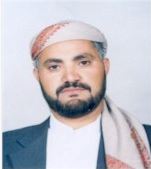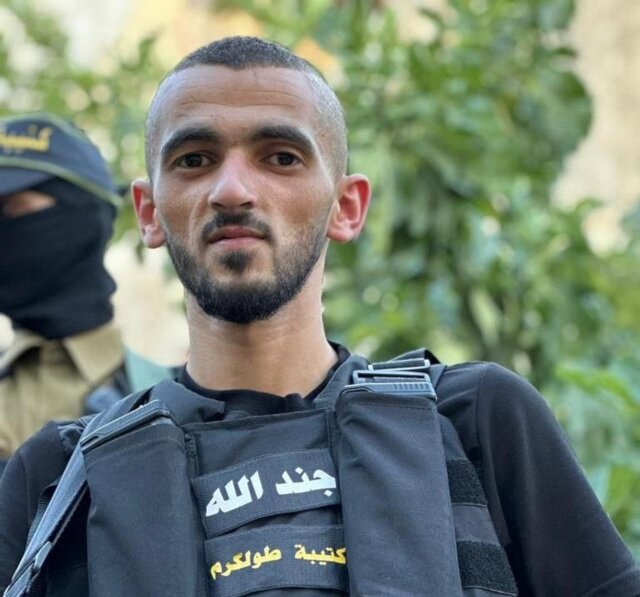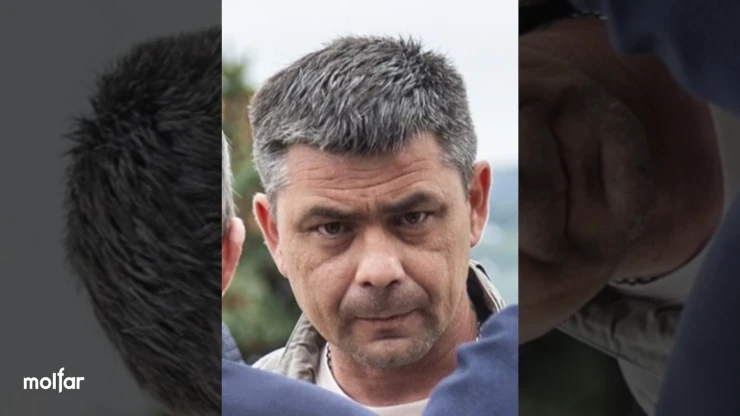
December 2015 Briefs
December 2015 Briefs
SHAYKH MANSOUR: NORTH YEMEN’S INFLUENTIAL POWERBROKER
Nicholas A. Heras
Yemeni militias mobilized along tribal lines and supported by the Saudi Arabia and United Arab Emirates-led coalition claim to be in preparations for an offensive against the capital of Sana’a. Reportedly, the anti-Houthi, anti-Saleh campaign is being conducted by the Supreme Council of the Popular Resistance in Sana’a Governorate, an organization of predominately tribal militias that was formed in November (al-Mawqea [Sana’a], December 26; al-Jazeera, November 18; Bu Yemen News Agency [Sana’a], November 16). The leader of the Supreme Council of the Popular Resistance in Sana’a Governorate is Shaykh Mansour Ali Yahya al-Khanqu, a member of the Yemeni parliament and the Muslim Brotherhood-aligned political party al-Islah, as well as a long-time opponent of the former Yemeni President Ali Abdullah Saleh and the Houthi movement (al-Jazeera, November 18; Yemeni Parliament Watch).
Shaykh Mansour, 57, is a native of the village of Bayt al-Khanqu, in Sana’a Governorate, and he obtained a degree in Shari’a (Yemeni Parliament Watch). Evidencing his importance to anti-Houthi forces in the area of Sana’a, Houthi fighters shelled Shaykh Mansour’s home and tried to seize it from him and Arhab tribal fighters loyal to him (al-Bawaba News [Sana’a], April 19). Mansour is a prominent leader within the Arhab tribe, a branch of the al-Bakil tribal confederation, which is one of the most powerful in northern Yemen. Arhab tribal militias are believed to have a total fighting force in the tens of thousands, and are thereby important front-line combatants in northern Yemen against fighters loyal to Saleh and Houthi forces (Yemen Daily [Sana’a], November 16). The Zindan district that Mansour represents in the Yemeni parliament is found in the northern suburbs of Sana’a. Zindan exists as a center of Arhab influence in northern Yemen, and is an ongoing site of conflict between Houthi forces and Arhab tribal militias (al-Khabar Now [Sana’a], December 21, 2014; al-Arabiya, December 12, 2014; al-Jazeera, February 9, 2014). Shaykh Mansour’s high ranking membership in al-Islah, his powerful status within the Arhab tribe—whose centers of power are located within Sana’a Governorate—and his position as the overall leader of the Supreme Council for Popular Resistance in Sana’a Governorate make him one of the most significant anti-Houthi, anti-Saleh commanders.
Prior to the outbreak of the current Yemeni civil war, Shaykh Mansour sat on the important Internal Security and Defense committees in the Yemeni parliament (Yemeni Parliament Watch). His membership within the executive committee of al-Islah in northern Yemen makes him one of the party’s more influential powerbrokers nationally (al-Bawaba News [Sana’a], April 19). Shaykh Mansour was an early supporter of the February 2011 popular uprisings against the Saleh government that occurred throughout Yemen, both in the context of his position as a leader within al-Islah and as an influential shaykh within the Arhab tribe found in the city of Sana’a and throughout its suburbs. In 2011, Yemeni security forces loyal to Saleh fought with Arhab tribal fighters in and around Sana’a, and Mansour was believed to be one of the primary organizers of Arhab-armed opposition to Saleh (Yemen Daily [Sana’a], November 16; BBC, December 14, 2014).
Although a long-time opponent of both Ali Abdullah Saleh and the Houthi movement with a tribal base of support in one of Yemen’s most important regions, Mansour’s role in the conflict has taken on increasing importance as a result of the intervention in Yemen by the Saudi and UAE-led coalition and its goal of displacing the Houthis from the country’s capital of Sana’a. For the foreseeable future, it is likely that Shaykh Mansour will continue to be a very important local Yemeni commander for the coalition’s effort to seize Sana’a from forces loyal to Saleh and the Houthis. This position will continue to make him a target of the forces that he opposes, and should he survive the conflict, he is well-positioned to be a decisive powerbroker in northern Yemen’s capital region.
COLONEL KHAZAAL AL-SARHAN: THE COMMANDER OF THE NEW SYRIAN ARMY
Nicholas A. Heras
In November, al-Jaysh Sooria al-Jadeed (New Syrian Army), a U.S. and Jordanian-trained and equipped armed opposition organization with an estimated 400 fighters, was formed (YouTube, November 8). Most of these fighters are from Deir al-Zor Governorate in eastern Syria near the Syrian-Iraqi border, and many belonged to Free Syrian Army (FSA)-affiliated groups operating under the formerly Saudi-backed Jabhat Asala wal-Tanmiya (Authenticity and Development Front) umbrella organization (Vice News, November 30; Russia Today, November 10; Orient News [Dubai], November 9). [1] The New Syrian Army’s primary mission is to defeat the Islamic State organization; fighters within the militia had previously fought against, lost to, and were consequently displaced from areas of Deir al-Zor governorate that are now under the control of the Islamic State (Orient News [Dubai], November 9; YouTube, November 8). The leader of the New Syrian Army is Colonel Khazaal al-Sarhan (a.k.a. Abu Walid and also nicknamed Abu Aboud), one of the most important surviving commanders of the FSA in eastern Syria (Twitter, November 9). [2]
Khazaal defected from the Syrian military in the summer of 2011, and is a native of the large town of Albu Kamal, southeast of the city of Deir al-Zor, near the Syrian-Iraqi border (al-Arabi al-Jadeed, November 19; All4Syria [Deir al-Zor], November 11; Viber Interview, December 7 – 15). He reportedly was an armed opposition leader in Albu Kamal and organized the defense of civilian protesters in the town and its surrounding area early on in the conflict, which culminated in the announcement of the formation of Kata’ib Allahu Akbar in March 2012 (Facebook, June 30, 2012; YouTube, March 14, 2012; Viber Interview, December 7 – 15). He emerged as a prominent FSA leader in eastern Syria, and is particularly noted for participating with Kata’ib Allahu Akbar fighters in Albu Kamal-based operations against al-Assad government security forces. These efforts ultimately contributed to the armed opposition’s complete control of the town and most of its surrounding area from the al-Assad regime (Facebook, May 23, 2014; YouTube, November 21, 2012; YouTube, November 16, 2012; YouTube, August 31, 2012). Khazaal was also part of an early attempt by Syrian army officer defectors in 2012 to unify the command structure of the FSA throughout Syria, named Faylaq al-Awwal (First Corps). While ultimately unsuccessful, al-Awwal introduced Khazaal to the state sponsors of the Syrian armed opposition as a rebel leader that could potentially work toward building a national armed opposition force (YouTube, October 10, 2012; YouTube, October 6, 2012; Viber Interview, December 7 – 15).
In addition to his role as a military commander, Colonel Khazaal was an important interlocutor between the independent, local, tribally-mobilized militias, such as the trans-national Sunni Arab al-Mashahda tribe that holds power in Deir al-Zor Governorate, especially in the area of Albu Kamal, as well as other FSA affiliated militias, most of which were ideologically Islamist and coordinated under the Authenticity and Development Front umbrella (Facebook, October 6, 2012; YouTube, August 31, 2012; Viber Interview, December 7 – 15). Khazaal also coordinated operations with local militant Salafist organizations, such as al-Qaeda affiliate Jabhat al-Nusra (JN—Victory Front), that were similarly combating the al-Assad government and the Islamic State as it was aggressively establishing its influence in the Syrian-Iraqi border region (Viber Interview, December 7 – 15). [3]
Khazaal has reportedly survived at least four assassination attempts, most notably through an improvised explosive device attack directed at his vehicle in September 2013. Following the assassination attempt, he was forced to recuperate for several months (Facebook, January 12, 2014; Facebook, September 23, 2013). Although he was one of the most important field commanders for the FSA organization in eastern Syria, however, Khazaal was not considered to be the most powerful FSA leader near Albu Kamal (Viber Interview, December 7 – 15). For example, Saddam Jamal, leader of another FSA-affiliated group (Liwa Allahu Akbar) and overall commander of an Albu Kamal area FSA umbrella organization (Jaysh Allahu Akbar), to which Kata’ib Allahu Akbar belongs, is believed to have been more influential at the time (Facebook, May 27, 2013; Viber Interview, December 7 – 15). However, Jamal defected to the Islamic State in December 2013, in a contentious move that led to significant dissension and recrimination within the FSA organization near Albu Kamal (Militant Leadership Monitor, December 2013; Viber Interview, December 7 – 15).
Jamal’s defection to Islamic State elevated Khazaal’s status within the armed opposition movement in the area of Albu Kamal, particularly among the rebel groups that fought against the influence of the Islamic State, and still remained under the umbrella of the FSA (Facebook, June 30, 2014; Viber Interview, December 7 – 15). After Islamic State seized control over most of Deir al-Zor Governorate by the end of the summer of 2014, including the area of Albu Kamal, Khazaal and fighters from Kata’ib Allahu Akbar were displaced from Albu Kamal and found refuge in western Syria; in particular, the militants went to the eastern Qalamoun mountain range on the border of Homs and Damascus governorates, and to areas of the Syrian Desert of Homs Governorate near the city of Palmyra (Viber Interview, December 7 – 15). From western Syria, Khazaal was reportedly the coordinator of Saraya al-Kufn al-Abyad (White Shroud Brigade), a clandestine organization currently conducting an insurgency campaign against Islamic State-controlled areas in Deir al-Zor (al-Hayat, October 30, 2014; Terrorism Monitor, December 19, 2014). He also has strong ties to another Authenticity and Development Front organization entitled Usuud al-Sharqiyya (Lions of the East), which is active against the Islamic State and the al-Assad government in the eastern Qalamoun and is seeking to open a second separate but concurrent front against the Islamic State forces in the Syrian Desert region of Homs (YouTube, April 1; al-Hayat, October 30, 2014; Viber Interview, December 7 – 15).
Reportedly, Khazaal’s role as the leader of Saraya al-Kufn al-Abyad and his long-standing, steadfast support for the FSA in eastern Syria, including his ability to mobilize a first cadre of fighters, led to his selection as the commander of the New Syrian Army (Viber Interview, December 7 – 15). He is also believed to have strong ties to local tribes in the Syrian-Iraqi border region in the eastern areas of Deir al-Zor Governorate, such as al-Mashahda and the Ougaidat. Both of these tribes are powerful socio-political actors at the local level in the area of Albu Kamal and, in the case of al-Mashahda, have a history of dissatisfaction with and resistance to the rule of the Islamic State (al-Quds al-Arabi, April 27, 2014; al-Sabah [Tunis], April 11, 2014; Viber Interview, December 7 – 15). It is also believed that the New Syrian Army will conduct raids against Islamic State throughout eastern Syria, particularly in the Syrian Desert region of eastern Homs Governorate and western Deir al-Zor Governorate, as a type of special operations force targeting fixed Islamic State positions. The strategy assumes that the New Syrian Army alone will not be sufficient in order to displace the Islamic State from eastern Syria, but that the organization can inspire tribally-mobilized, armed uprisings against the Islamic State with the propensity to displace and subsequently replace its rule in eastern Syria (Viber Interview, December 7 – 15).
Khazaal’s experience and significant social networks with potential for actionable lines of influence deep into communities within Islamic State-controlled territory in the Syrian-Iraqi border regions will likely be significant in the implementation of the anti-Islamic State campaign. Also of value is his experience navigating the complicated tribal and ideological politics of eastern Syria, including civil-military administration in rebel-ruled areas, which will be important in the event the Islamic State is displaced from eastern Syria and a new socio-political authority will need to be instituted. For these reasons, Colonel Khazaal could emerge as one of the most important armed opposition leaders in eastern Syria.
Notes
1. For an analysis of the ideological orientation of Kata’ib Allahu Akbar, and its relationship to the factions of Albu Kamal at the time of the rise of influence of the Islamic State in the area of Albu Kamal, see Aymenn Jawad al-Tamimi, “The Factions of Albu Kamal,” Brown Moses, December 18, 2013, https://brown-moses.blogspot.fr/2013/12/the-factions-of-abu-kamal.html?m=1.
2. Viber interview with Syrian activists from the cities of Deir al-Zor and Albu Kamal, interviews conducted on December 7 and December 15, 2015, and Viber interview with a Syrian defector from the al-Assad government who worked several years in Damascus with close ties to Deir al-Zor opposition and with direct knowledge of the formation of the New Syrian Army, interview conducted on December 10, 2015.
3. For this announcement, please see https://justpaste.it/eastrebels.


